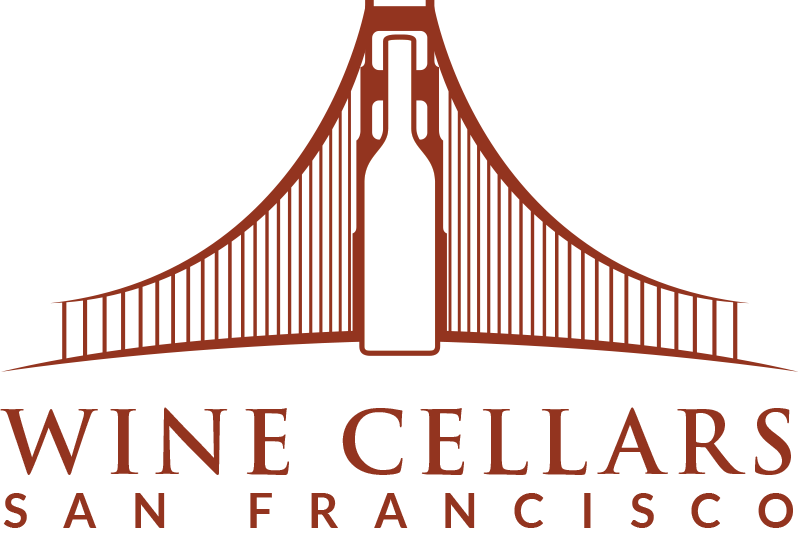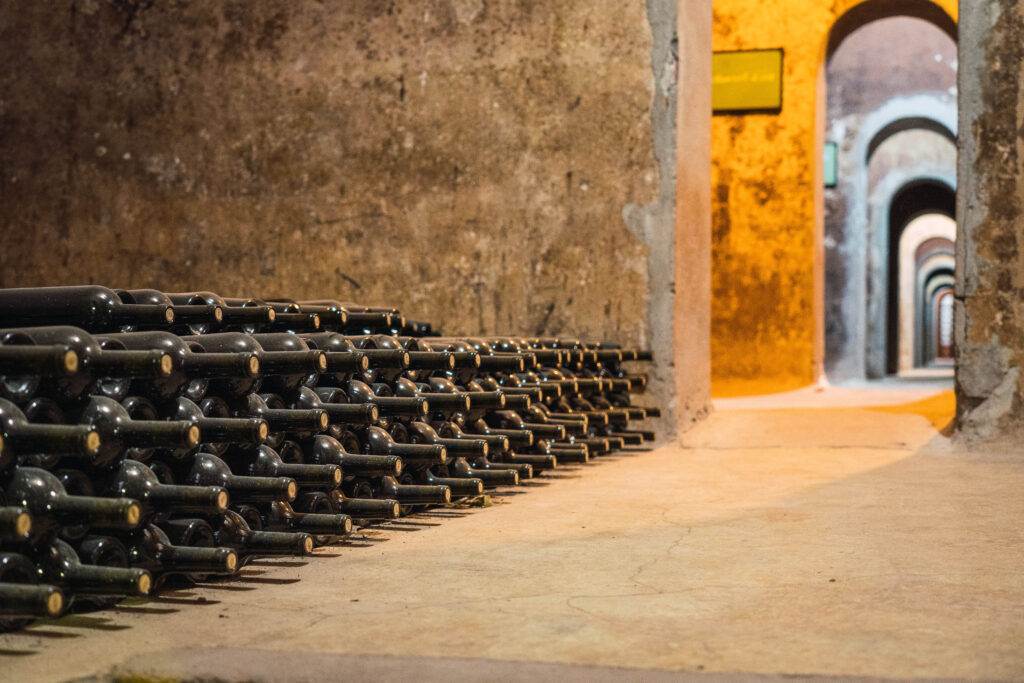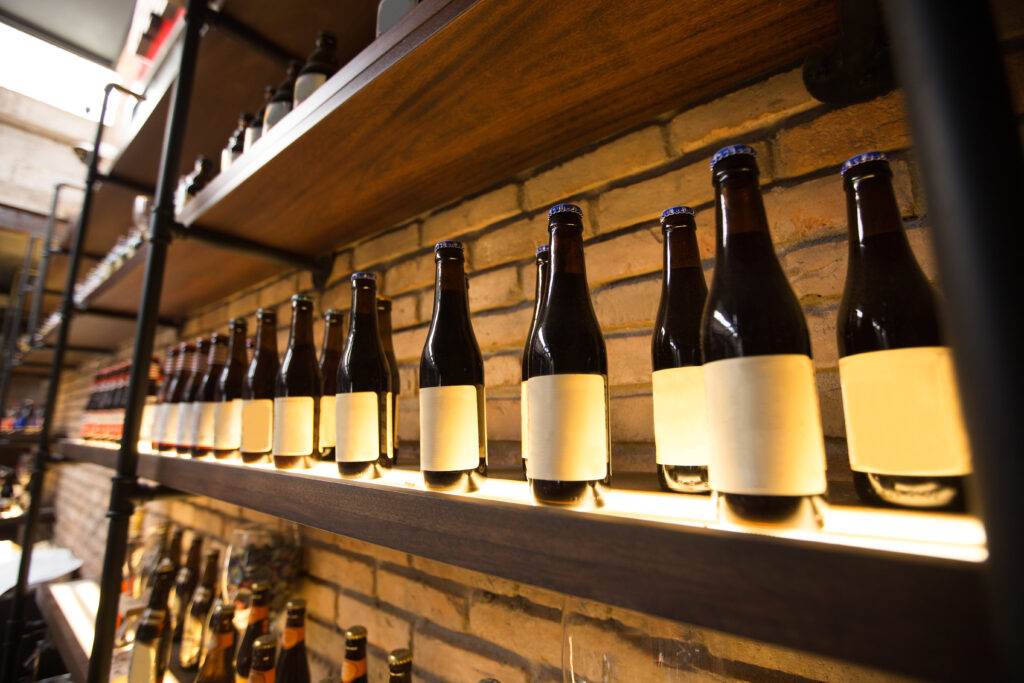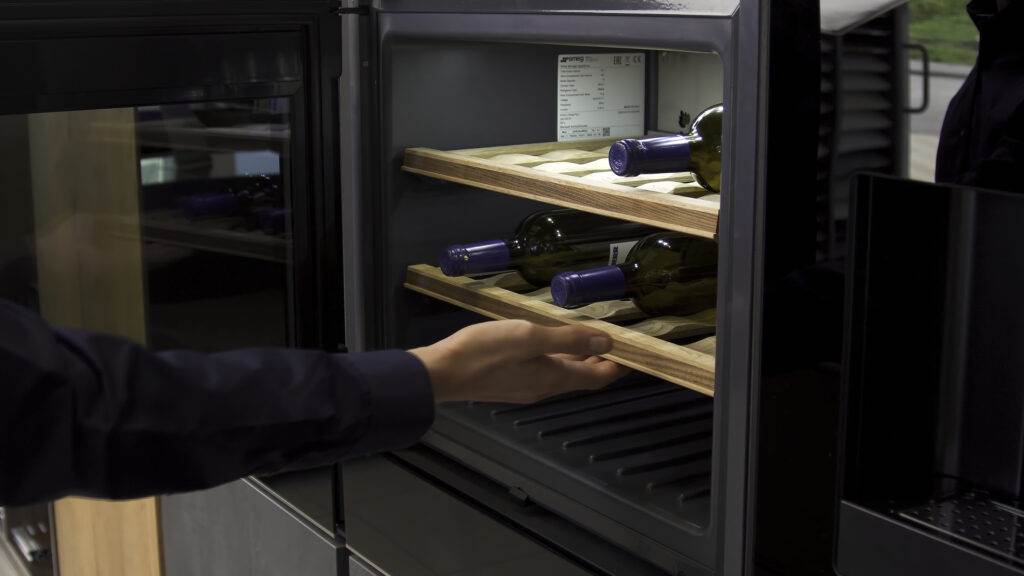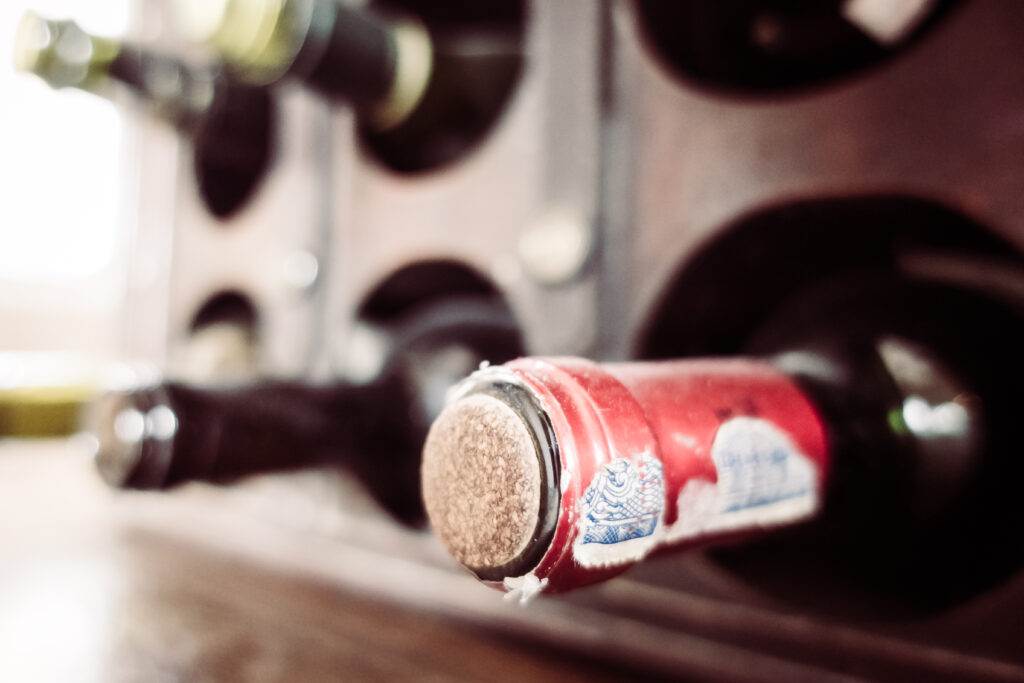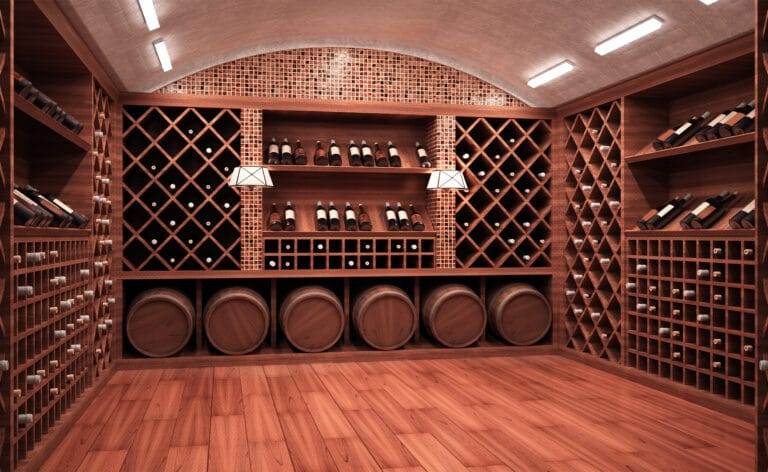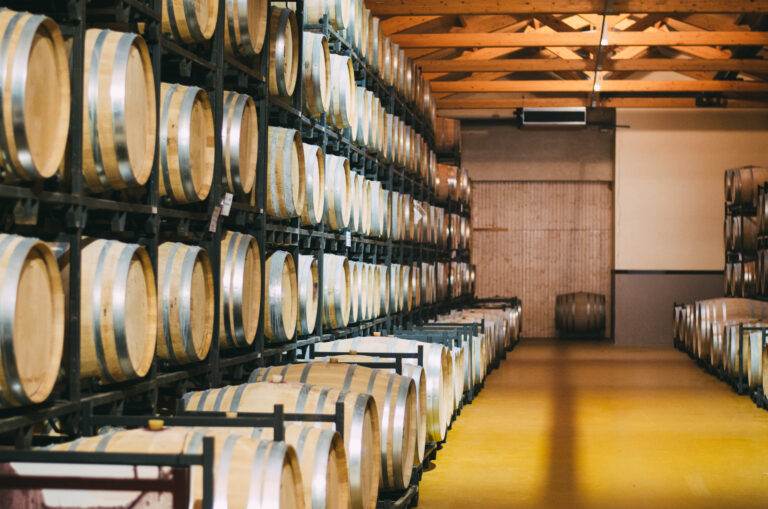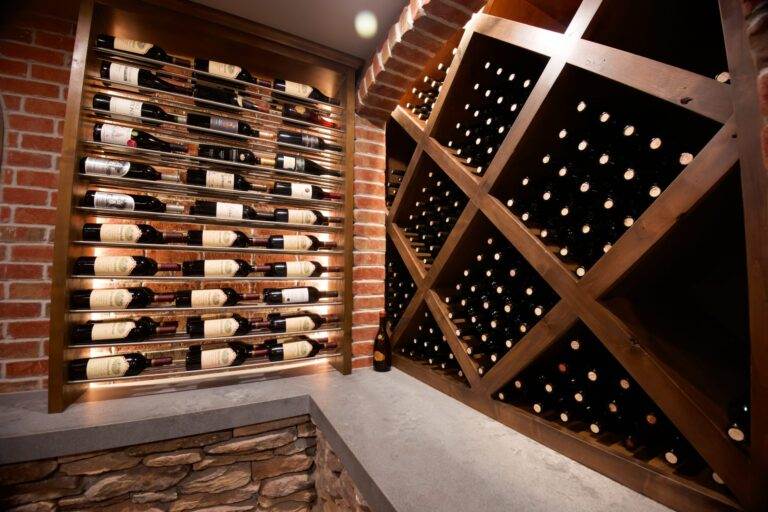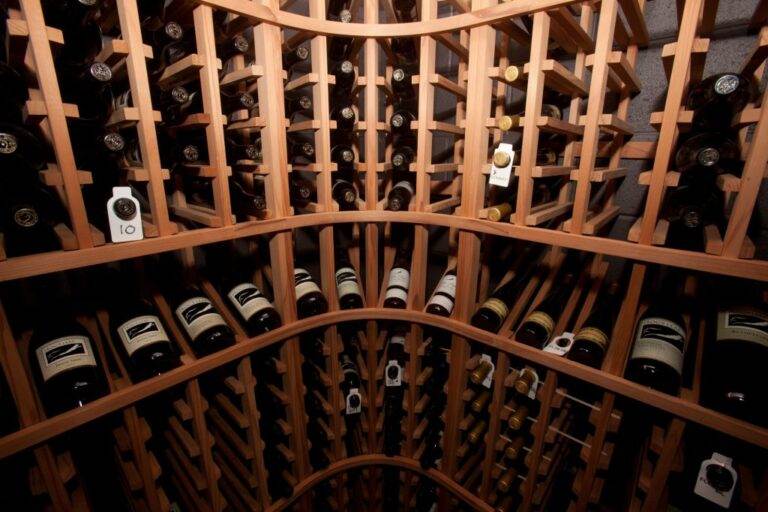Introduction
In the world of viticulture, the significance of wine cellars cannot be overstated. Homeowners and wine enthusiasts alike often seek to create the perfect environment for their precious bottles. A wine cellar is not merely a storage space; it is a dedicated environment designed to age and preserve wine effectively. Understanding what defines a wine cellar and the importance of proper wine storage is crucial for anyone interested in maintaining their collection.
Definition of Wine Cellars
Wine cellars are special spaces constructed to provide an optimal environment for wine storage. Typically located underground or in temperature-controlled areas of a home, these cellars maintain consistent temperature and humidity levels. The primary aim of a wine cellar is to protect wine from detrimental external factors such as light, temperature fluctuations, and vibrations that could compromise its integrity. Each component, including racks, insulation, and climate control systems, plays a pivotal role in ensuring the longevity and quality of the wines stored within.
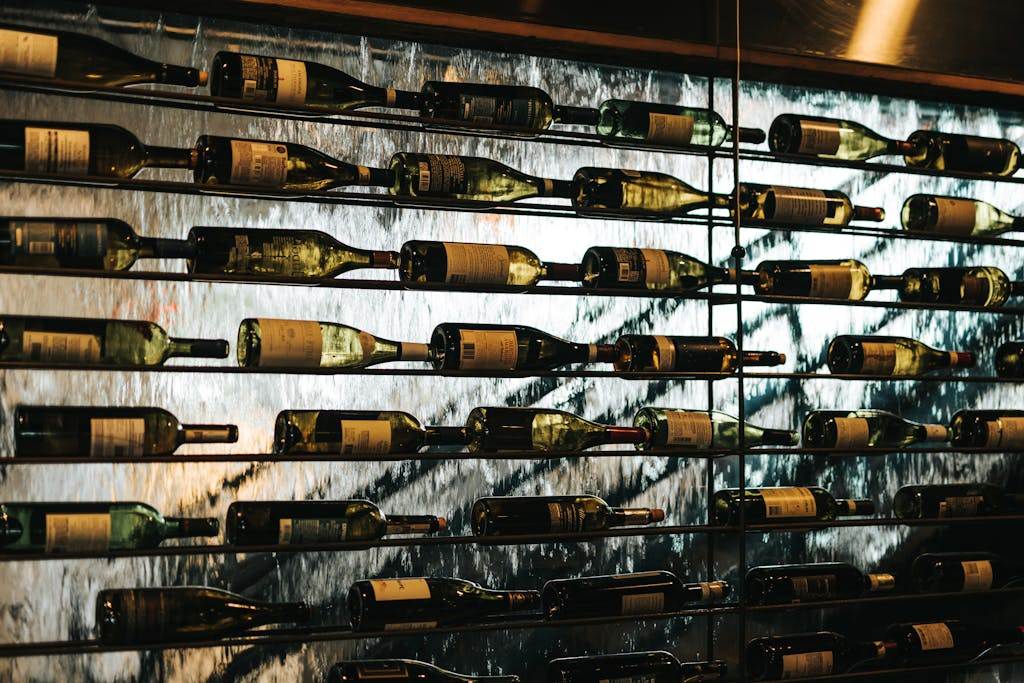
Importance of Wine Storage
Proper wine storage is essential for preserving the flavor and character of wines. Storing wine at the right temperature (around 55°F or 13°C) and humidity (between 50%-70%) helps in achieving the best aging potential. A well-designed cellar not only extends the lifespan of the wine but also enhances the overall tasting experience, allowing connoisseurs to savor the nuances that develop over time. With the right storage solutions, wine enthusiasts can enjoy their collections and share them with friends and family for years to come.
Residential Wine Cellars
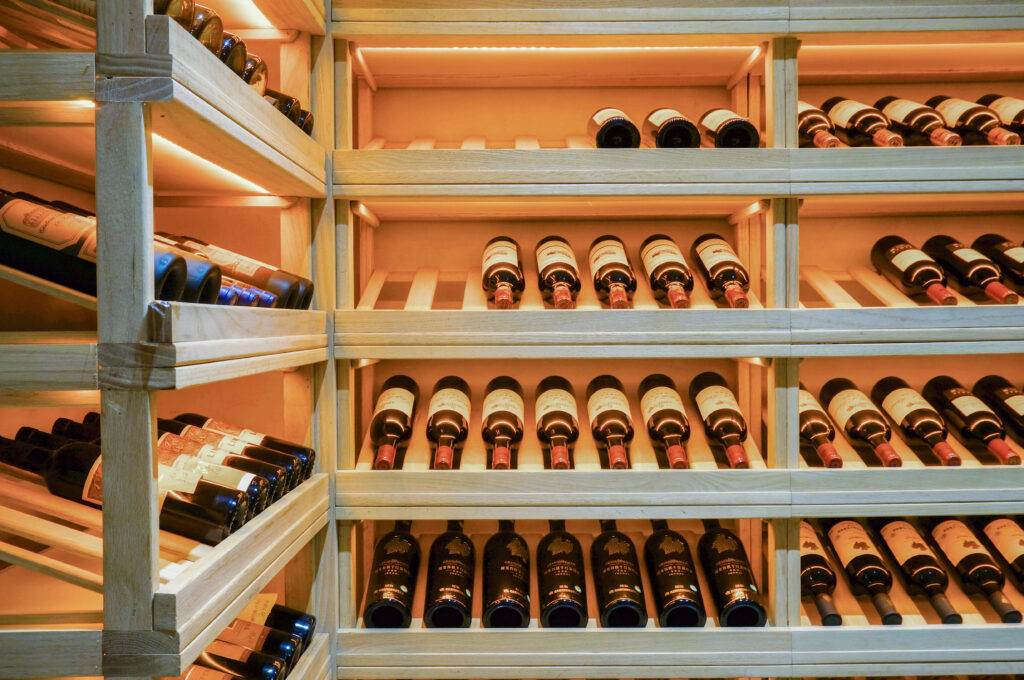
Design and Aesthetics
Creating an aesthetically pleasing wine cellar is just as important as its functional aspects. Homeowners often aim for a design that reflects their personal style while facilitating an optimal storage environment. Various materials, such as wood, stone, and glass, can be utilized to enhance the visual appeal of the cellar while providing durability. Lighting is another critical consideration, as it should be soft and indirect to avoid harmful effects on the wine. Many enthusiasts choose custom-built wine racks and cabinetry that not only organize and display their collection but also complement their home’s overall decor. The strategic planning of layout and design ultimately contributes to an inviting atmosphere, allowing for an enjoyable wine tasting experience at home.
Temperature and Humidity Control
Effective temperature and humidity control are vital elements in the construction of a residential wine cellar. Wine should be stored at a consistent temperature of approximately 55°F (13°C) to ensure optimal aging conditions. A reliable climate control system, such as a wine cooling unit, is essential for maintaining this temperature. In addition, managing humidity levels between 50%-70% prevents cork drying and wine oxidation. Homeowners often invest in hygrometers and thermometers to closely monitor conditions within the cellar. By prioritizing these aspects, wine collectors can protect the integrity of their collection, ensuring its longevity and enhancing the enjoyment of their fine wines over time.
Commercial Wine Cellars
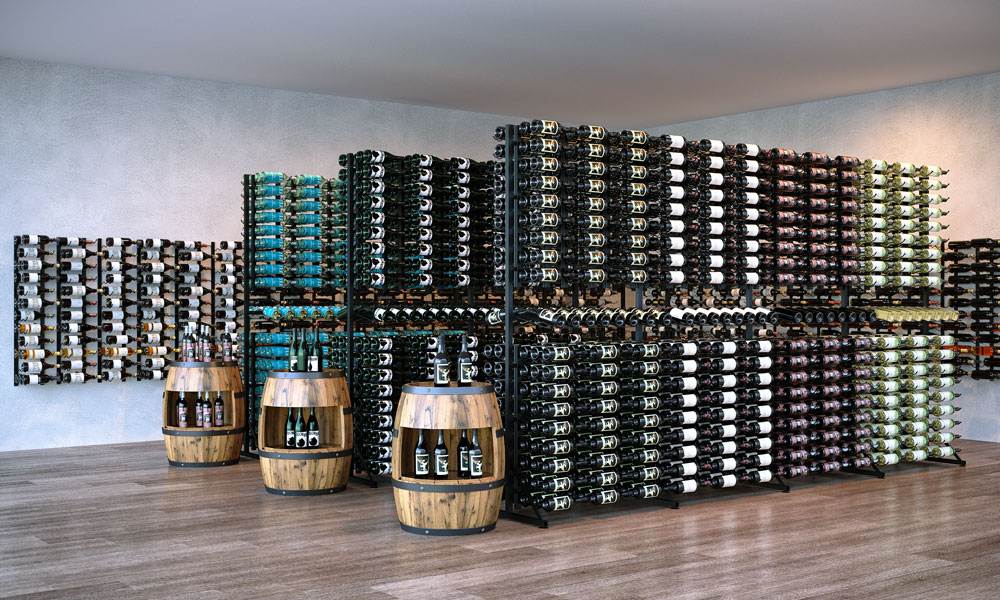
Storage Capacity
When designing a commercial wine cellar, storage capacity becomes a paramount consideration. Restaurants, wine bars, and retail spaces must efficiently accommodate large inventories while maintaining easy access to various vintages. The layout often utilizes vertical space with tall racks or custom shelving to maximize storage without compromising organization. This ensures that each bottle is accessible and appropriately placed according to factors like varietals and regions, ultimately supporting efficient inventory management.
Accessibility and Display
In commercial settings, the accessibility of wine is crucial not only for staff but also for customers. Display options such as modular racking systems or temperature-controlled cases allow for an engaging visual experience. These displays should highlight premium selections or seasonal offerings, enticing clients to explore further. Moreover, providing adequate lighting enhances visibility while creating an inviting atmosphere. It’s not uncommon to see glass doors used in wine cellars. This choice serves dual purposes, protecting the wine’s integrity while showcasing the selection. Successful commercial wine cellars prioritize accessibility and aesthetic appeal, facilitating both organization and customer engagement. By blending functionality with design, these spaces entice patrons and enhance their overall wine experience.Ultimately, commercial wine cellars should reflect an establishment’s identity while ensuring that wine is stored under optimal conditions. With the right planning and execution, businesses can create an environment that fosters appreciation for fine wines, encouraging guests to indulge in their selections and further establishing the establishment’s reputation for excellence in wine offerings.
Construction Materials
Residential Wine Cellars
When it comes to constructing residential wine cellars, the choice of materials is crucial for both aesthetic appeal and functionality. Homeowners often opt for natural materials such as hardwoods for cabinetry and shelving, which not only provide strength but also enhance the overall warmth and elegance of the space. Stone and brick are commonly used for walls to create a rustic look while ensuring temperature stability. Insulated glass doors are also popular, allowing for a clear view of the collection while protecting the wine from external temperature fluctuations. Proper insulation is vital, as it ensures the cellar maintains an optimal climate for wine preservation.
Commercial Wine Cellars
For commercial wine cellars, the selection of construction materials must efficiently balance durability, functionality, and aesthetics. Stainless steel is frequently utilized for modern racking systems due to its sleek appearance and resistance to the elements, making it an ideal choice for high-traffic areas. In addition, engineered wood can be employed for a stylish yet practical solution that optimizes space while remaining cost-effective. Furthermore, temperature- and humidity-controlled systems must be integrated to preserve the integrity of the wine. Commercial wine cellars often incorporate stylish lighting elements and high-quality glass display cases to enhance the visual appeal while keeping the wines properly stored. By carefully selecting construction materials, establishments can create wine cellars that not only meet storage needs but also elevate the customer’s experience.
Cost Considerations
Initial Setup Cost
When planning for wine cellars, the initial setup cost can significantly vary based on the size, design, and materials selected. For residential wine cellars, homeowners may find that costs soar when opting for high-quality hardwood, natural stone, or specialized climate control systems. Expenses also escalate with the addition of custom cabinetry, shelving, and optimal insulation techniques to maintain ideal temperatures and humidity levels. On the commercial side, retailers must anticipate even higher investments, as they generally require larger storage capacities, more sophisticated temperature control systems, and upscale display cases to entice customers. The overall budget must encompass not just construction materials, but also labor costs associated with professional installation and design.
Maintenance Cost
After the initial construction phase, ongoing maintenance is a vital aspect to consider for both residential and commercial wine cellars. Regular checks of temperature and humidity systems are necessary to ensure wine remains preserved in optimal conditions. Over time, components such as cooling units or insulated doors may need repairs or replacements, adding to the maintenance expenses. Routine upkeep, including cleaning shelves and ensuring that materials remain in good condition, cannot be overlooked. For commercial establishments, staff training on proper wine handling and storage is essential, which could contribute to further costs. Therefore, effective budgeting for both initial and ongoing maintenance will ensure that wine cellars serve their intended purpose effectively, preserving the quality of the wines while providing a delightful experience for customers and homeowners alike.
Regulations and Licensing
Residential Wine Cellars
When homeowners design residential wine cellars, understanding local regulations is crucial. Many jurisdictions have building codes that dictate aspects such as construction standards, ventilation requirements, and electrical installations. Homeowners should consult with local authorities to ensure compliance with zoning laws and any necessary permits. Additionally, if the cellar is part of a larger renovation project, homeowners may need to acquire approvals that encompass structural integrity and safety measures. While navigating regulations can seem daunting, proper adherence ensures that the wine cellar is not only functional but also legally compliant, safeguarding the homeowner’s investment.
Commercial Wine Cellars
For commercial establishments, the regulations become even more intricate. Business owners typically need to obtain licenses that pertain to the sale and storage of alcoholic beverages, which may involve a series of local and state requirements. Compliance with health and safety regulations is also paramount, as businesses must ensure that their wine storage meets specific hygiene and operational standards. In addition, some locations may have restrictions on the types of wines that can be stored or sold, necessitating an understanding of local ordinances. By diligently adhering to these regulations, commercial wine sellers can create a safe and compliant environment that appeals to wine connoisseurs while avoiding potential legal issues. Thus, awareness of regulatory frameworks is imperative for both residential and commercial wine cellars to thrive successfully.
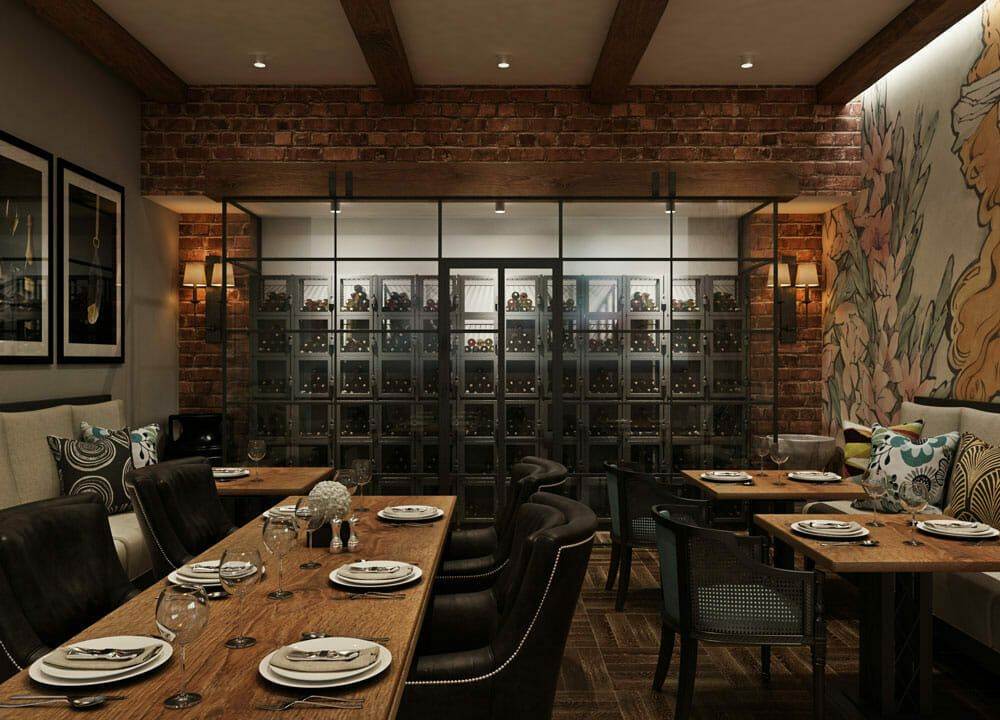
Security Measures
Residential Wine Cellars
To maintain the integrity and value of a residential wine cellar, implementing robust security measures is essential. Homeowners often consider various aspects, including access control and environmental monitoring. Security systems, such as surveillance cameras and alarm systems, can help deter unauthorized access and protect the wine collection. Furthermore, secure locking mechanisms on wine cellar doors ensure that only designated individuals can enter the storage area. In addition to physical security, homeowners should incorporate environmental controls to monitor humidity and temperature levels. This protects the wine from spoilage while providing peace of mind that the collection is safeguarded and preserved over time. By employing a comprehensive security approach, homeowners not only protect their investment but also enhance the enjoyment of their wine collection.
Commercial Wine Cellars
For commercial wine cellars, security measures are even more critical due to the significant financial investment involved. Business owners need to implement advanced security systems, including 24/7 surveillance, restricted access both to stock and storage areas, and effective monitoring of all transactions. Furthermore, staff training on security protocols ensures that employees are aware of potential risks and how to respond appropriately. Commercial establishments should also invest in insurance policies that cover wine theft and spoilage due to unforeseen circumstances, thus alleviating potential financial loss. Coupling effective security measures with compliance to regulations not only protects the establishment’s assets but also cultivates customer trust, as patrons feel more secure knowing their wine is stored under vigilant conditions. Overall, comprehensive security strategies are paramount for the success of both residential and commercial wine cellars.
Conclusion
Summary of Key Differences
In summary, the security measures employed for residential and commercial wine cellars differ significantly due to their unique requirements and priorities. Residential wine cellars prioritize access control and environmental monitoring to safeguard personal collections, while commercial wine cellars focus on extensive surveillance and employee training to protect extensive financial investments. Both types require tailored strategies to ensure that the wine remains protected and the investment is preserved.
Considerations for Choosing the Right Type
When selecting the appropriate security measures for any wine cellar, several key factors should be considered. For homeowners, understanding the value of the wine collection, the level of security needed, and the environmental controls required can shape their approach toward maintaining a secure cellar. Additionally, homeowners may want to consider their level of activity concerning wine consumption and hosting events, as this may influence their specific security needs.For businesses, the scale of operations, the volume of wine stored, and customer interactions must be evaluated when devising security protocols. Establishing a robust security framework that includes employee training is vital to foster a responsible environment where staff can effectively manage security risks. By tailoring security solutions according to these considerations, both residential and commercial wine cellars can enhance their protection mechanisms, preserving the wine’s quality and the owners’ investment over time. A comprehensive strategy ultimately ensures that both residential and commercial wine collectors can enjoy and present their selections with confidence.
